Key to Veterinary Distributor Success: Effective Animal Vaccines, Nutrition & Healthcare
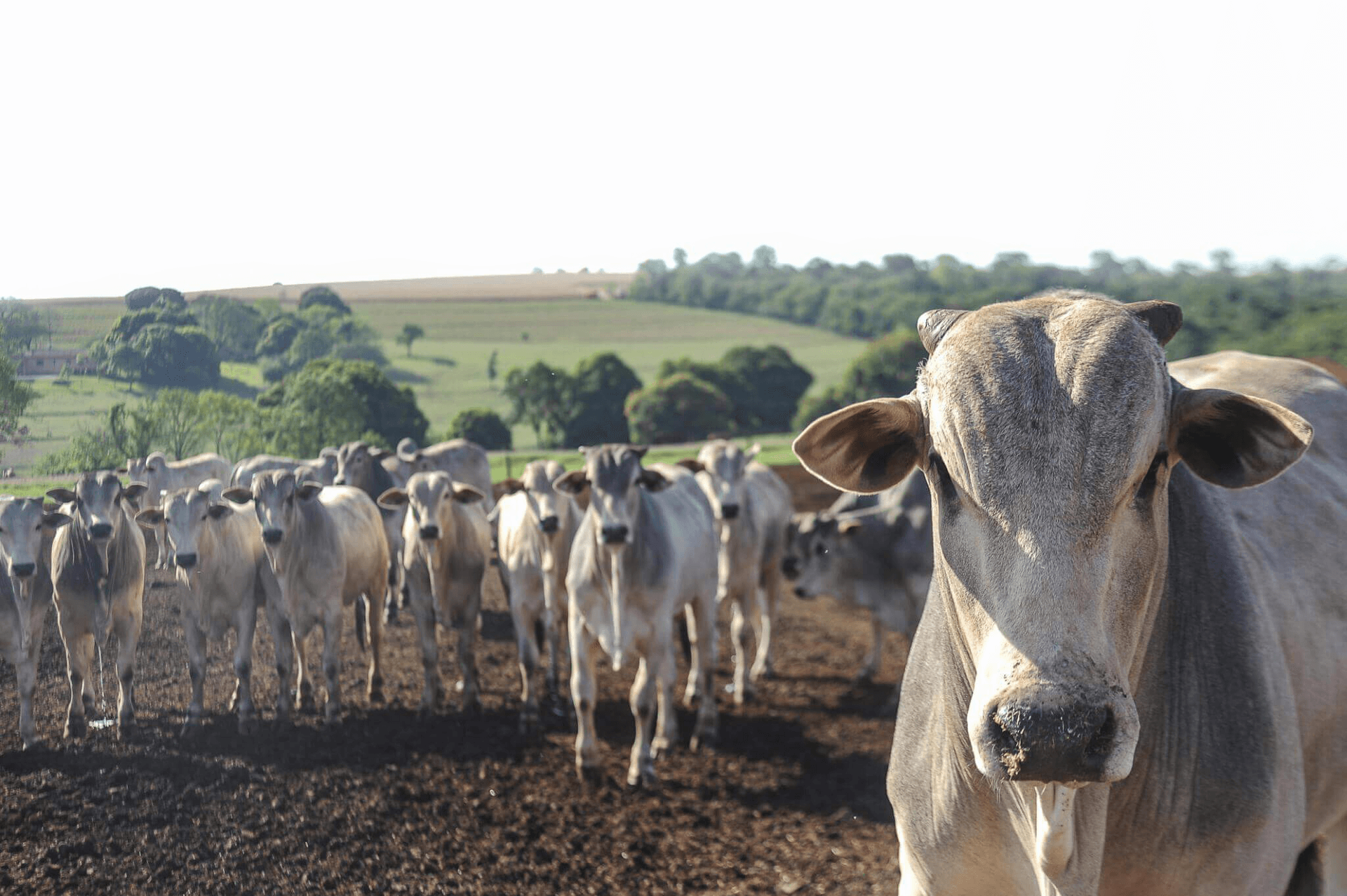
Contents Overview
Through this article, we look into the importance of the vaccine, the benefit of nutritional supplements, and antibiotics in promoting livestock health, and the advantages they provide to distributors within the livestock pharmaceuticals and medical devices supply chain.
Livestock farming is a cornerstone of global agriculture, providing essential resources such as meat, milk, and eggs to meet the demands of a growing population.Key highlights:
- The importance of vaccines in disease prevention
- Animal nutrition is key to higher productivity and maintaining health
- Parasite control for animal and environment health
- Maintaining hygiene with disinfectants and antiseptics in biosecurity and outbreak prevention
- The usage of effective veterinary care in preventing economic loss
- Navigating success and mastering the veterinary distribution market with AdvaCare Pharma
Driving Efficiency and Reducing Economic Loss of Livestock Farms Through Animal Healthcare
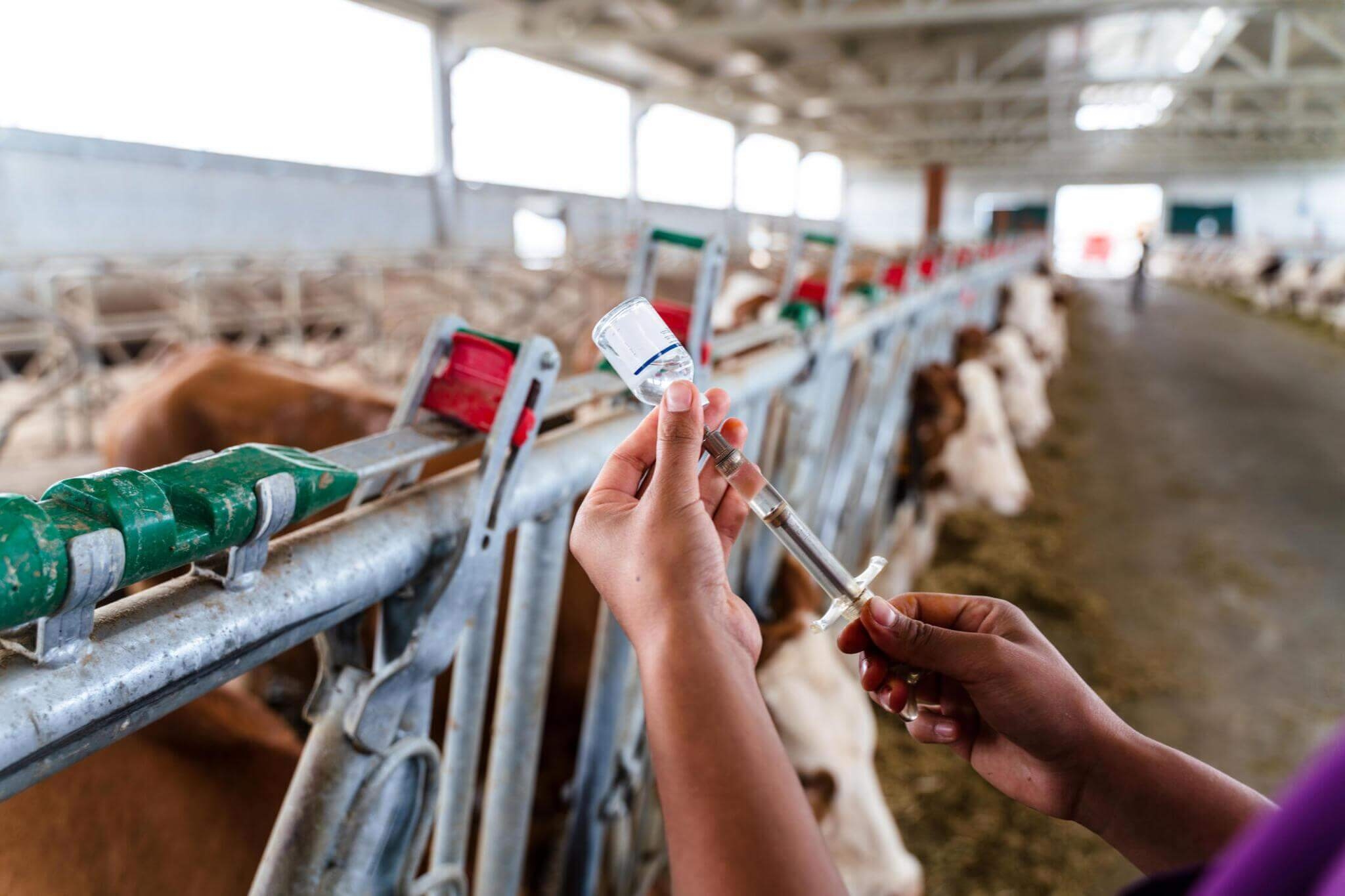
The Importance of Vaccines in Livestock Farming Healthcare
Vaccination stands as a cornerstone of preventive healthcare in livestock farming, safeguarding animals against infectious diseases. Diseases like salmonella, brucellosis, and avian influenza pose significant health risks and substantial economic losses within the industry. The FAO emphasizes vaccination as the primary tool for disease prevention, recommending its widespread administration to livestock. This proactive approach enables farmers to effectively manage disease outbreaks, ensuring the overall health and welfare of their animals.
Prioritizing disease mitigation and preventive healthcare measures, particularly vaccination, is essential for promoting productivity and sustainability within the livestock industry.
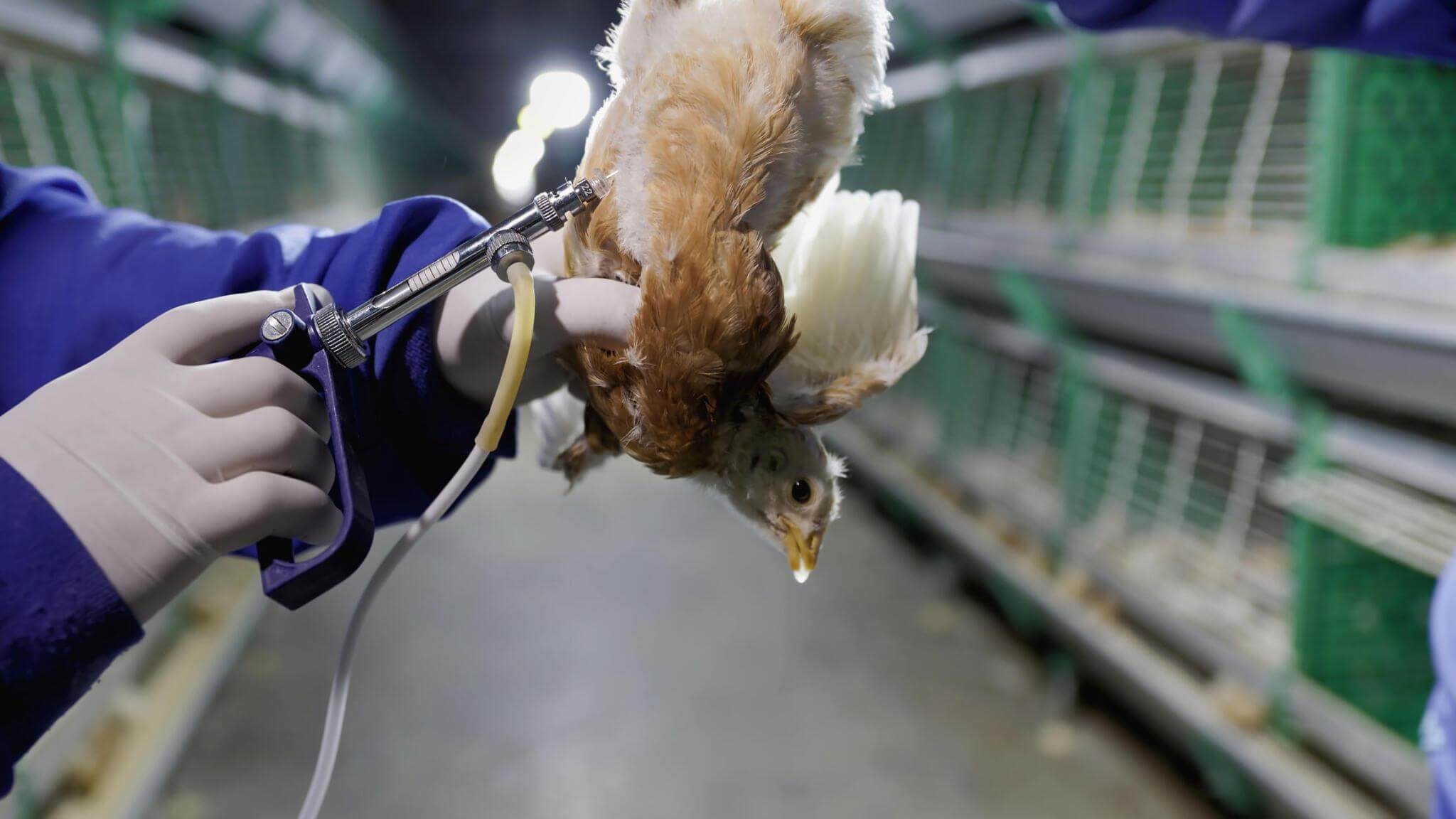
- Injections
Injection is the most direct method, where vaccines are administered to livestock using specific syringes designed for this purpose, such as drenching guns or plastic steel syringes. Utilizing incorrect or low-quality equipment may lead to overdosing or underdosing, compromising the effectiveness of the vaccination and potentially exacerbating the animals' health issues. - Oral Vaccination
Some vaccines are designed to be consumed orally, either mixed with food or water such as soluble powders, granules, or premixes, or directly with tablets. This method is often used for mass vaccination because it is less stressful for the animals. - Nasal Sprays
Vaccines administered via nasal sprays are used primarily for respiratory diseases. This method allows for direct delivery to the respiratory system, providing local immunity. - Pour-on Solutions
Pour-on vaccines are applied directly to the skin, usually along the back of the animal. The skin absorbs the vaccine, making this a less invasive method. - Bolus
A bolus is a large pill that is given orally to an animal. Some vaccines come in this form and are designed to dissolve slowly in the stomach, releasing the vaccine over time.
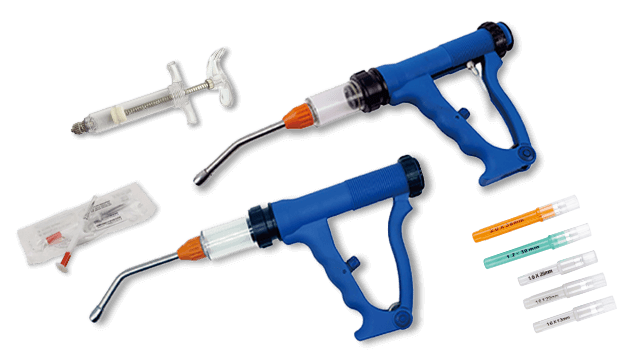
At AdvaCare Pharma, we are a leading manufacturer and supplier of veterinary products specializing in drenching guns and plastic steel syringes.
Our recent product lineup includes an advanced drenching gun and plastic steel syringes designed for precise medication delivery featuring a durable plastic barrel and graduated markings. The syringes made from high-quality stainless steel, guarantee durability, precision, and reduced contamination risk.
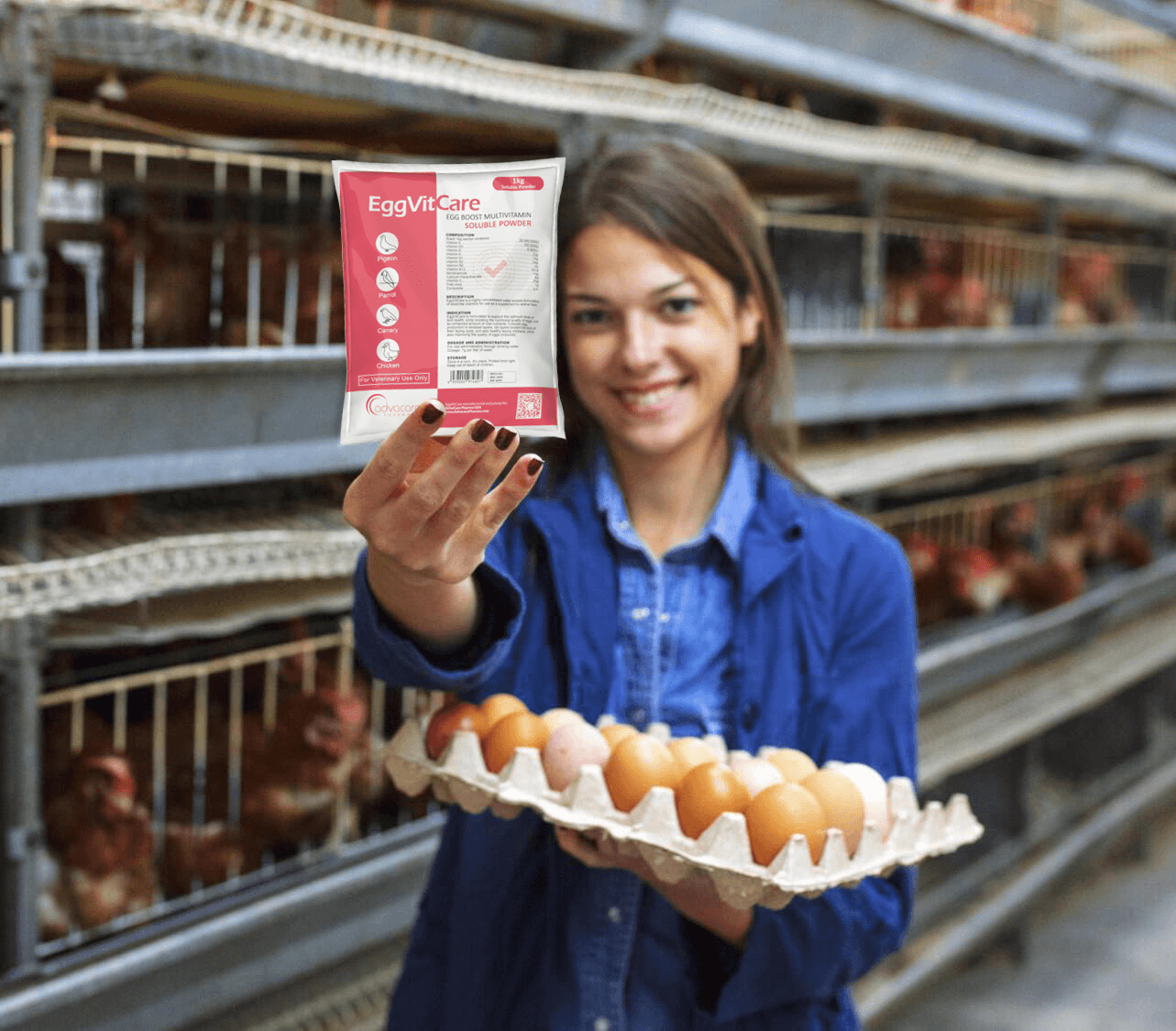
Animal Nutrition Key to Higher Productivity and Maintaining Health
Ensuring animal health through proper nutrition is essential for sustainable livestock production, with significant implications for environmental preservation and human nutrition (FAO, 2023). Veterinary supplements and nutrition play a big role in ensuring the health, productivity, and overall well-being of livestock. Like humans, animals require a balanced diet consisting of all necessary minerals, fluids, nutrients, and vitamins. The use of supplements can help fill nutrient gaps in diets caused by soil deficiencies, inadequate grazing, and limited clean water availability, fill nutritional gaps, and ensure animal health and well-being—key for a reliable human food source. Veterinary nutrition supplements and treatments help prevent and manage health issues, improve feed efficiency, and enhance livestock performance in weight gain, milk production, and egg quality. In challenging conditions, these treatments maintain livestock health by offering a diet rich in essential nutrients, commonly used to prevent or manage health concerns such as weight management, digestion, chronic disease risks, and nutrient deficiencies.
Healthier livestock means more milk, meat, and eggs entering the food supply that can provide people with a nutritious diet.
Veterinary nutrition treatments can significantly mitigate the impact of unfavorable conditions like extreme weather, poor water quality, and overcrowded environments in some countries. By strengthening animals' immune systems and improving overall resilience, these treatments enhance livestock health and productivity, contributing to the sustainability and efficiency of farming operations.
Parasite Control for Animal and Environmental Health
Effective parasite control is one of the best ways to maintain both animal and environmental health. Deworming, for example, protects animals from significant illnesses and the resulting decrease in productivity by preventing work-related health issues.
For example, although flies may not directly cause diseases in farm animals, their significant role in transmitting diseases is undeniable. Implementing fly control measures is essential; an effective method is the use of cyromazine, an insect growth regulator that prevents fly larvae growth in animal manure. Not only does this reduce the risk of disease spread among animals, but it also contributes to a healthier and more hygienic environment and promotes more sustainable disease-resistant farming environments.
Maintain Hygiene with Disinfectants and Antiseptics in Biosecurity and Outbreak Prevention
Recent pandemics such as African Swine Fever (ASF), which have significantly affected Southeast Asia in recent years, illustrate the importance of hygiene in biosecurity protocols for animal farming. To prevent the introduction and spread of infectious diseases among farm animals, the US Department of Agriculture stresses the need for regular disinfection practices.
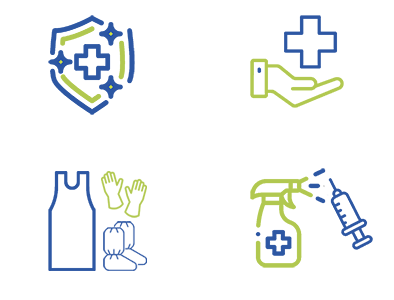
These organisms, often carried and shed by animals without visible signs, pose a risk of cross-species transmission, potentially affecting human health. The Centers for Disease Control and Prevention (CDC) further recommends thorough washing of animal feeding equipment before disinfection and advises farmers to wear protective clothing—such as gloves, coveralls, and boots—when in contact with or working near animals.
Effective cleaning and disinfection strategies are paramount in eliminating pathogens from the farm environment, preventing their transmission via tools, clothing, vehicles, and individuals who move between farms. Such rigorous hygiene practices not only impede disease proliferation on livestock farms, making outbreaks less likely but also safeguard animal health, ensuring stable food production and minimizing financial losses from disease outbreaks. Adopting these measures is crucial for sustaining a robust agricultural sector, prepared to address the challenges posed by infectious diseases.
Effective Veterinary Care in Preventing Economic Losses
Disease outbreaks in livestock can lead to severe economic repercussions for farmers by reducing productivity, increasing mortality, and causing significant financial losses. Preventative measures, such as vaccinations, nutrition treatments, and other effective treatments, including antibiotics and antiparasitics, are crucial in reducing the risk of these diseases by preventing their occurrence and spread. Timely and appropriate veterinary intervention is essential for quick recovery, minimizing downtime, and lessening the economic impact.
Poor livestock health may affect economic viability by:
- Reducing yields of meat, milk, or eggs
- Slowing growth rate
- Creating lower value produces with poorer grades
- Creating poorer quality products with lower value
- Reducing fertility
- Increasing mortality
- Increasing veterinary cost
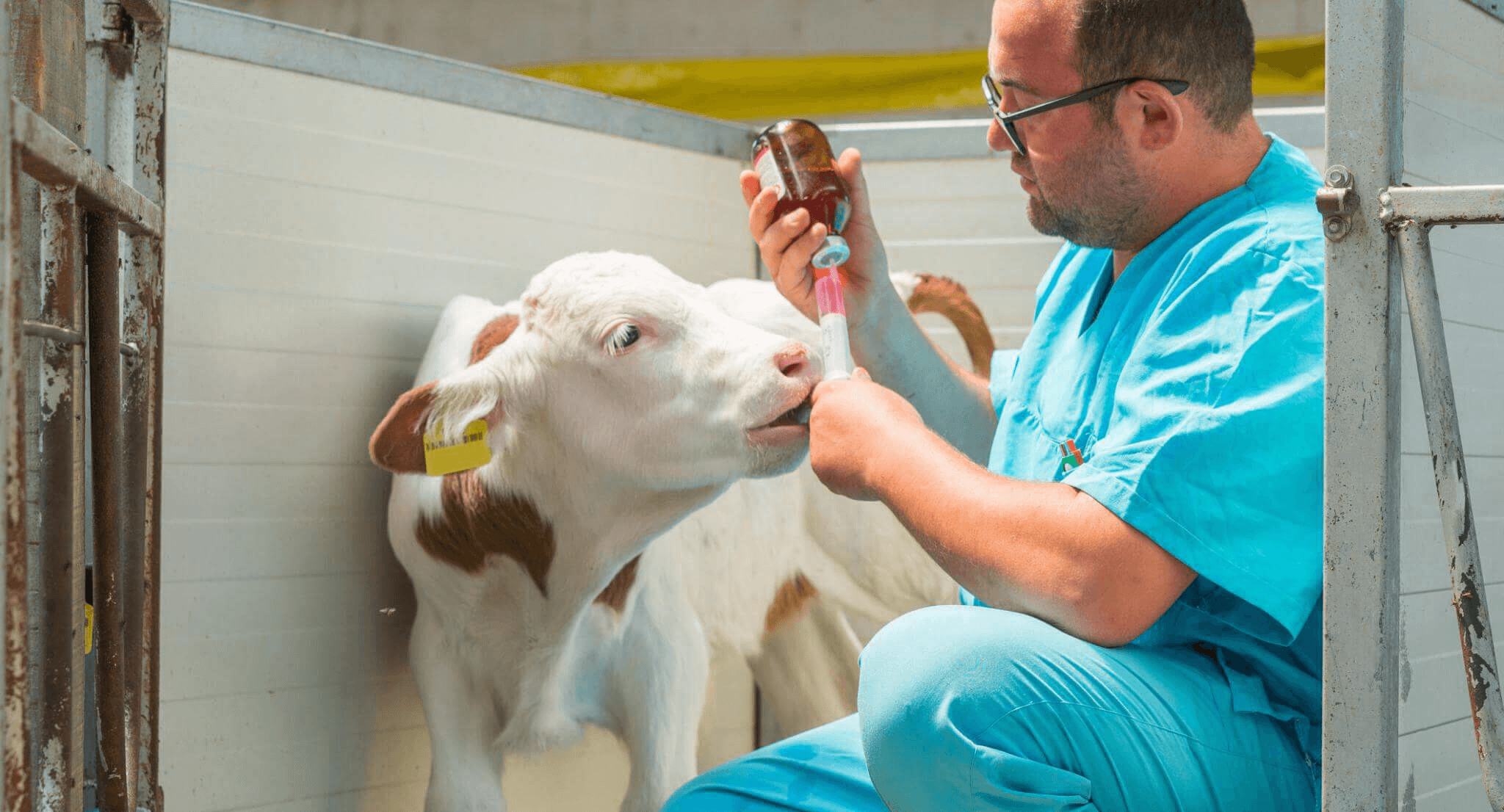
Responsible Use of Antibiotics
The animal health community has altered the way antibiotics are used on U.S. farms, in collaboration with the Food and Drug Administration (FDA) and the American Veterinary Medical Association (AVMA). Changes that took effect on Jan. 1, 2017, limit the uses of antibiotics in animal agriculture and require increased oversight by a veterinarian to further ensure the responsible use of antibiotics. Antibiotic resistance is a serious public health concern and the animal health community shares that concern.
Resistance VS Residue
Antibiotic resistance refers to bacteria that evolve to the point where they are not easily killed by antibiotics. This is different from antibiotic residue. Antibiotic residue refers to molecules that remain in meat from animals that have been treated with antibiotics. There are multiple systems in place to ensure the meat is safe and does not include antibiotic residues, including mandatory antibiotic withdrawal periods in livestock and routine testing of meat by the U.S. Department of Agriculture and food companies.
Using antibiotics responsibly for animals benefits everyone because it makes food safer and cheaper. Antibiotics keep animals healthy, which means fewer harmful bacteria get into our food, making it safer to consume.
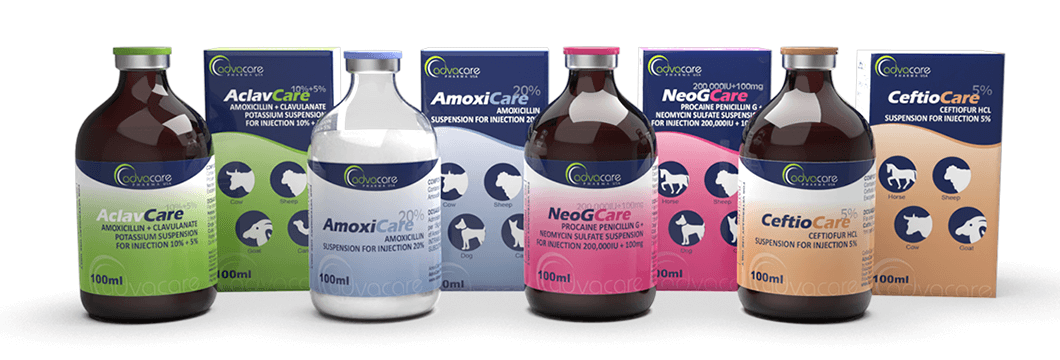
As a global manufacturer of veterinary antibiotics, it is crucial to recognize the significance of antibiotic usage in ensuring the health and well-being of livestock. Through our commitment to quality and innovation, we aim to support livestock producers in maintaining healthy herds while safeguarding the effectiveness of antibiotics for future generations. Keeping animals in good health helps farmers produce food more efficiently, not only making it cheaper but also utilizing fewer natural resources. Understanding how antibiotics affect resistance is crucial. We need to develop effective plans to protect public health, food safety, and the well-being of animals.
Navigating Success and Mastering the Veterinary Distribution Market with AdvaCare Pharma
Success in the veterinary distribution industry depends on more than just product offerings; it requires a deep understanding of customer needs and the current situation. As key intermediaries between manufacturers and end-users, distributors play an essential role in ensuring products reach veterinarians, livestock farmers, and animal owners in a timely manner.
Effective distributors should offer solutions that meet the unique challenges of animal healthcare, building trust and reliability with their clients. By adapting to market changes and maintaining strong relationships, veterinary distributors can significantly impact animal health and the broader agricultural sector through:
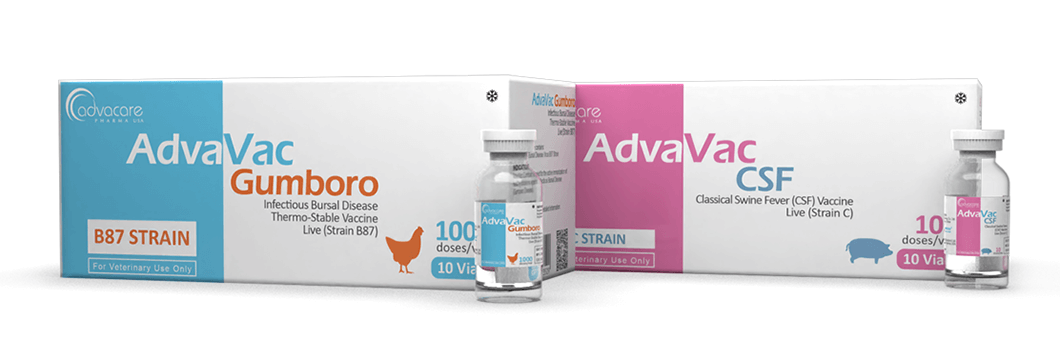
Quality Products
AdvaCare Pharma is a notable manufacturer of veterinary pharmaceuticals, focusing on the manufacture of reliable and cost-effective medicines for animals. With a range of over 250 veterinary pharmaceuticals produced in 13 dosage forms, we've cultivated trust among our veterinary distributors. We ensure consistently effective veterinary medications are available to distributors, veterinarians, and livestock farmers by offering customized healthcare solutions for animals tailored to diverse conditions. Should you not find a product specification on our website or in our catalog, please feel free to contact us for more information about specification options.
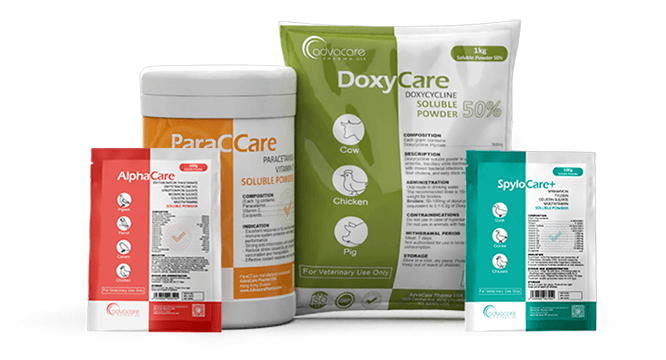
Diversification of Product Portfolio
Distributors who offer a comprehensive range of veterinary vaccines and supplements, antibiotics, and medical devices can attract a wider customer base and strengthen their competitive position in the market. By diversifying their product offerings, distributors are better equipped to meet the changing needs of livestock farmers and veterinarians and to take advantage of emerging market trends. Every product in our catalog is designed with the singular goal of enhancing the overall health and well-being of animals and pets.
Accessibility to Product Stocks
When distributing veterinary healthcare products, distributors must ensure timely product availability, a factor that cannot be ignored. AdvaCare Pharma supports distributors in optimizing their product cycles, offering insights into demand, consumption patterns, and the best times to reorder, thus avoiding stock shortages or excesses. In our media section, we provide updates on global and local industry trends, enabling distributors to stay at the forefront of the market. By providing this guidance, distributors enhance their competitive edge as well as their service quality. One of AdvaCare's goals is to support the success of our distributors and reinforce the efficiency of the overall veterinary supply chain in their market.
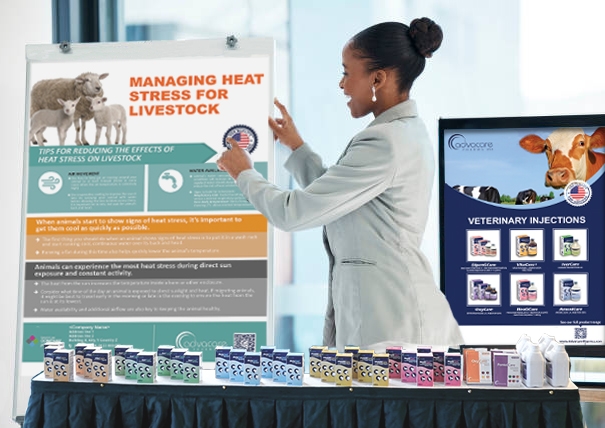
Value-added Services
Distributors can provide value-added services such as product education and training to livestock farmers to help them make informed decisions about vaccine selection and administration. In support of our distributors, AdvaCare Pharma provides promotional materials for educational training and marketing purposes. We empower our distributors with exceptional marketing support and integrated logistical services at no additional cost.
Veterinarian distributors play a crucial role in ensuring veterinarian pharmaceuticals and supplements availability and accessibility, contributing to livestock industry health and sustainability. By recognizing the significance of these resources, distributors can seize growth opportunities within the agricultural sector, ultimately contributing to improved animal health and nutrition for a better, more sustainable world.
References: Food and Agriculture Organization of the United Nations (FAO). (2009). Livestock in the balance. Food and Agriculture Organization of the United Nations (FAO). (2011). Global food losses and food waste–Extent, causes and prevention. Food and Agriculture Organization of the United Nations (FAO). (2018). Shaping the future of livestock. Biosecurity For Highly Pathogenic Avian Influenza Issues and Options. (2008). Capper, J., & Williams, P. (2019). White Paper: Healthy Livestock Produce Sustainable Food. MSD Animal Health. Center for Food Security and Public Health, Iowa State University. Importance of Nutrients. The University of Georgia Extension. (2017). Mineral Supplements for Beef Cattle. Centers for Disease Control and Prevention (CDC), National Center for Emerging and Zoonotic Infectious Diseases (NCEZID). Katz, S. E. One Health: Its Origins and Future. National Center for Biotechnology Information. Centers for Disease Control and Prevention (CDC), National Center for Emerging and Zoonotic Infectious Diseases (NCEZID), Division of Healthcare Quality Promotion (DHQP). Darwish, W. S., Eldaly, E. A., El-Abbasy, M. T., Ikenaka, Y., Nakayama, S., & Ishizuka, M. (2013). Antibiotic Residues in Food: The African Scenario. Japanese Journal of Veterinary Research, 61(Suppl. S13), S13–S22. [PubMed] [Google Scholar]. Shaffer, E. (2018). EU approves limits on antibiotics use in farm animals. Meat+Poultry.
Don't want to miss the next AdvaCare article?

Recommended Content
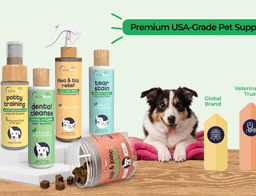
Pet Supplements Manufacturer: Functional and Premium Ingredients with USA Quality Standards & Traceability

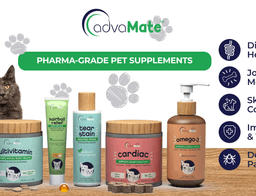
Global Pet Supplement Market Trends: Why Distributors are Shifting to Premium Grade Quality

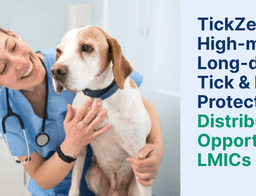
TickZero™: High-Margin, 12-Week Flea & Tick Protection, Distributor Opportunity in LMICs
